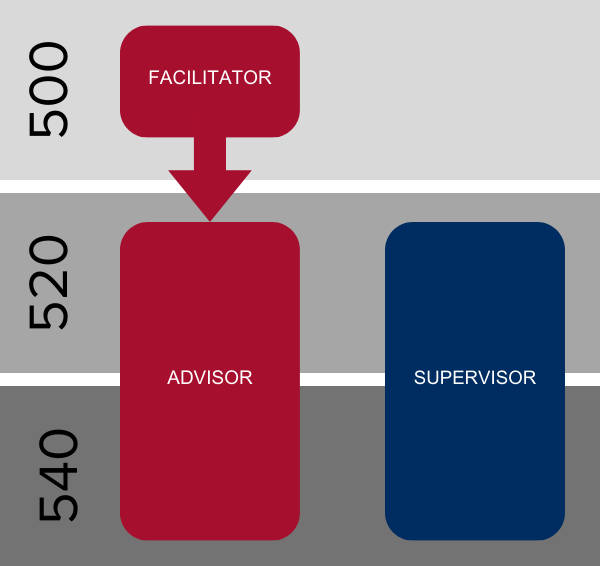To live up to the highest ideals of medicine and to “first, do no harm,” physicians must have a deep understanding of the evidence base that informs patient care and the ability to continue growing their knowledge throughout their careers.
Learning the scientific method and basic scientific and ethical principles of clinical and translational research, including how such research is conducted and evaluated, is crucial to this understanding. Analyzing and appraising the literature becomes part of the skill set that you, as a physician, utilize in clinical practice to ensure the best possible care for your patients.
Students gain these competencies through the Scholarship and Inquiry Course series, then build on the solid foundation developed to create their research projects. By learning to design, conduct, and evaluate clinical and translational research, students become well-equipped to address real-world medical challenges and contribute to advancing medical science through their research endeavors.
The MEDSCHLR course series positions students to embrace lifelong learning and understand and integrate emerging medical knowledge into patient care.
Students become scholars, transitioning from knowing how to answer any question to knowing which questions to ask! This cultivates physicians with a deep appreciation for evidence-based medicine and a commitment to providing the highest standard of patient care, ultimately benefiting the well-being of both patients and society.
We look forward to having you in class!
Thank you,
Your MEDSCHLR Team
Course information
In this section, you will find information about the structure and components of MEDSCHLR, and resources designed to help you navigate through the course series.
Definitions used in scholarship and discovery
Learning plan
The MEDSCHLR learning plan supports students’ ability to engage in scholarship by providing a framework that will anchor learning to the College of Medicine six core competencies. This framework helps structure the work students will be doing in the 520 and 540 courses, equipping them for success as scholars.
What goes into a MEDSCHLR learning plan?
- Identification of a supervisor (the content expert for your scholarly work).
- Description of scholarly interests and learning needs.
- Self-assessment of areas of strengths and opportunities for growth.
- Description of learning goals and their correlation to the core competencies.
- Detailed activity plan (including methods and project artifacts).
- Facilitator
- Advisor
- Supervisor
The faculty member who facilitates small-group conversation and journal club in MEDSCHLR 500 A and B (Winter and Spring term).
The individual who advises students through their scholarly journey by providing guidance and direction on their MEDSCHLR learning plan during MEDSCHLR 520 and 540.
Typically, small-group facilitators transition to advisors in MEDSCHLR 520 and 540.
The individual who a student works with on their learning activity and is a content expert on the activity topic (i.e., a principal investigator, physician, community representative, faculty, etc.).

Tips and tricks
We want to help you do your best! In this section, you will find some pointers about what to focus on in each MEDSCHLR course.
- Practice 2x2 tables.
- Bio stats.
- Practice problems.
- PICO assignments.
- Study design.
- Declare MEDSCHLR 520 and 540 path.
- Start thinking about project.
- Start reaching out to supervisors about potential projects.
- Study design.
- Identify supportive supervisor early.
- Check in with supervisor regularly.
- Come prepared for all required WSU advisor check-ins.
- Complete all assignments on time.
- When you encounter road blocks, reach out as early as possible (e.g., med.scholar, advisor, course directors).
- Narrative Reflections are paramount.
MEDSCHLR 500 frequently asked questions
The purpose of this course is to introduce students to what it means to be a scholar in the field of medicine. It is designed to prepare you for your independent scholar projects in the 520 and 540 courses by guiding you through the full range of scholarship conceptualizations. It also gives you the opportunity to learn about multiple research methods as a means to discovery.
With the beginning of a new course, there can be a lot of questions. We want to provide you with some of the most common questions we get when students start the MEDSCHLR course series.
- The large-group sessions will introduce you to basic biostatistics, research ethics, and study designs.
- In the small-group sessions, you will apply what you have learned in the reading and large-group sessions through journal clubs, problem sets, presentations, and discussions.
The MEDSCHLR 500 course spans two terms. Because of this, it must be labeled as A and B for registrar purposes. It is one continuous course, and the grade for the course is cumulative across the terms.
Every small group is a required session for students.
There are some large-group sessions that are required. See E.Flo MD for all required large-group sessions.
You do not! The MEDSCHLR 500 course is designed to expose you to research opportunities and guide you through the process of selecting a research topic. It is okay if you have one in mind already, but it is not required. The Scholarship Opportunities Day will give you the chance to learn about and explore various avenues of scholarly research.
While both programs offer student support in guidance through research, they are two different departments, with separate missions and separate goals for students.
Learn more:
Any MEDSCHLR questions should be directed toward the Scholarship Education inbox (med.scholar@wsu.edu). This includes curriculum and assessment questions. Dr. Ted Chauvin is your Course Director, and Dr. Anne Grossman is your Associate Director.
A small-group facilitator, who you will have for all three MEDSCHLR courses, will be assigned. They will lead your required small groups each week for 500 and continue to advise you through MEDSCHLR 520 and 540.
Student resources
Access a variety of resources chosen to help you with everything from stats to citations.
Resources for MEDSCHLR 500 + 520/540
-
Fill out this form on E.Flo MD. You must have a signed student-supervisor agreement before starting MEDSCHLR 520/540.
Resources for MEDSCHLR 500
-
P: Patient or population
I: Intervention or treatment
C: Comparison of one intervention to another
O: Outcome you anticipate


